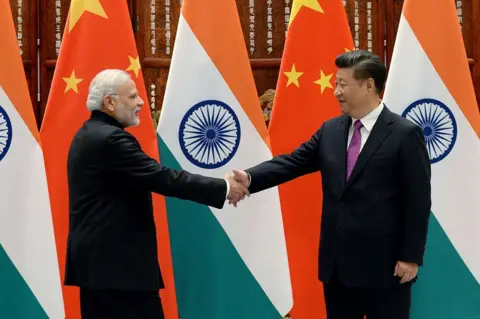In a remarkable tale of humanity amidst one of history's darkest chapters, Vinay Gupta has delved into the life of his grandfather, Kundanlal, who became an unsung hero by aiding Jewish families in their desperate bid to escape the clutches of Nazi oppression. The revelation, shared during a personal conversation, invoked Gupta to unravel a legacy steeped in courage and altruism, intricately woven with a backdrop of war and prejudice.
Kundanlal's journey began in modesty, raised in Ludhiana, India, and marrying young at thirteen. He became a diverse businessman, handling everything from timber to textiles, and even engaging with India's independence movement. His stature grew, allowing him to meet prominent figures like Jawaharlal Nehru. However, it was his encounters in Vienna during the late 1930s that compelled him to despair and act against antisemitism as he witnessed the harrowing plight of Jewish individuals.
In his family memoir "A Rescue in Vienna," Gupta reveals how Kundanlal made strategic efforts to salvage lives under threat. As Europe faced the repercussions of Hitler's ambition, Kundanlal, during a hospital visit for an ailment, learned about the rising antisemitic violence from a young couple, Alfred and Lucy Wachsler. Moved by their adversity, he devised a plan to employ Jewish professionals in India, offering them not only a lifeline but also hope for a new beginning.
Operating under the guise of technological transfer, Kundanlal placed advertisements in Austrian newspapers, seeking skilled labor to relocate to India. The responses were profound; individuals like Fritz Weiss, a lawyer, and Alfred Wachsler, a woodworker, found refuge through Kundanlal's strategic job offers with false company names such as "Kundan Agencies." Each life saved was a victory against the overwhelming despair surrounding them.
Kundanlal's initiative led to five refugee families moving to India between 1938 and 1939. Initially, they found shelter in Ludhiana, where Kundanlal constructed homes in hopes of integrating them into local life. Unfortunately, as Hitler's war escalated and Britain declared war on Germany, these families, regardless of their innocence, faced severe discrimination and internment. Kundanlal’s effort to aid them met harsh realities, but his dignity remained untouched by the bitterness of their experiences.
The upheaval didn’t stop Kundanlal. He continued to further his philanthropy by establishing one of Punjab's first schools for girls, showcasing his commitment to education even as the brutalities of war encroached upon their everyday lives. Kundanlal passed away in 1966, leaving behind a powerful legacy that elucidates humanity's ability to act against injustice.
Gupta’s exploration of Kundanlal’s life serves not only as a narrative of survival but as a stirring reminder of individual valor amid systemic violence. The account challenges popular historical perceptions and celebrates the determination of a single man to embrace compassion over fear—demonstrating how a refusal to remain a passive bystander can indeed alter the fate of others.





















